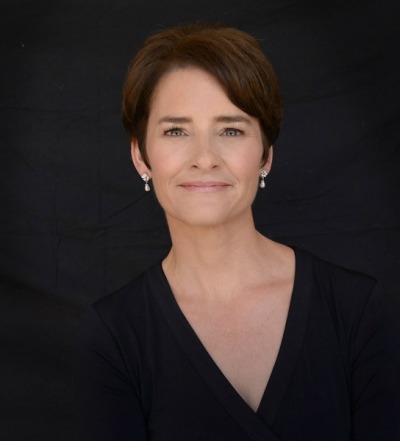Women's March Reveals Godless Nature of Feminism

Madonna dropping F-bombs and talking about blowing up the White House. Actress Ashley Judd proudly proclaiming, "Yeah, I'm a nasty woman — a loud vulgar, proud woman." And mothers marching with their daughters while wearing female genitalia on their heads.
The recent Women's March was enough to make most anyone think twice about supporting women's causes, especially those who are Christians. In addition to the march's vulgarity and verbal violence, it also championed abortion and banned pro-life groups from officially participating. Those, like Students for Life, who dared to march anyway were spat upon, jeered, and had signs ripped from their hands. It's no wonder a young woman from the pro-life group remarked, "If this is what feminism is, I don't want any part of it."
In the past several years, there's been renewed interest among Christians to embrace feminism, spearheaded in large part by Sarah Bessey's popular book on the topic called Jesus Feminist. To Bessey, feminism — at least Jesus feminism — is simply "the radical notion that women are people too." And likely, there were Christians who participated in the Women's March simply because they believe women possess equal worth and should be treated with dignity and respect.
But as the Women's March illustrated — today's feminism has very little to do with dignity, respect, or even promoting what's best for women. Instead, it's become a hodgepodge of misguided ideas and platforms drawn from feminism's second, third, and fourth waves.
Rather than jumping on this bandwagon, Christian women should educate themselves about what feminism truly is, and then strongly resist this movement.
Second-Wave Feminism
The organizers of the Women's March typify what's known as second-wave feminism, which began in the 1960s and was popularized by women like Betty Friedan, author of The Feminine Mystique. While the first wave of feminism in the late 19th- and early 20th-century embraced motherhood and family, the second wave of feminism viewed motherhood and family as an impediment to women's liberation.
Simone de Beauvoir, the woman who inspired Friedan and to whom Friedan dedicated her book, once wrote: "Woman can be emancipated only when she can take part on a large social scale in production and is engaged in domestic work only to an insignificant degree." Similarly, Friedan compared modern housewives to "the millions who walked to their own death in the concentration camps."
To second-wave feminists, the home is a prison and women can be free only when they secure financial independence and find fulfilling work outside the home. Marriage is okay, as long as women can continue on their path to self-actualization. And children are welcome — if they are planned, and fit into a woman's educational and professional goals.
Since unplanned babies can sidetrack a woman's career — or equally abhorrent, make her dependent on a man — second-wave feminists are pro-choice. This pro-choice, anti-family agenda featured prominently in the Women's March. Planned Parenthood, one of two Premiere Partners of the Women's March, is the nation's largest abortion provider. Two other Women's March partners were the National Organization for Women (NOW) and NARAL Pro-Choice America, both of which are radically pro-choice, and were either co-founded or founded by Betty Friedan.
This agenda of second-wave feminism is completely antithetical to Christianity. It rejects the sanctity of life and the goodness of marriage, institutions designed and established by God. It also tells women that to find their life, they must grasp it and put themselves first.
Jesus, on the other hand, said that to find our life, we must lose it. This is so true when it comes to the choice between abortion and embracing motherhood. One comprehensive study showed that 81% of mothers who abort their children are more likely to experience subsequent emotional health problems. But mothers who keep their children enjoy the lifelong benefits of children, something Scripture repeatedly refers to as a blessing.
Third-Wave Feminism
The flaunting and promotion of female sexuality at the Women's March is typical of third-wave feminism. Unlike second-wave feminists, who oppose pornography because they view it as degrading to women, third-wave feminists (often the daughters of second-wave feminists) embrace pornography, as well as sexual license. Influenced by the message of the sexual revolution, they view unrestrained sexual expression as essential to women's freedom. As a result, many are as sexually aggressive and sexually vulgar as any predatory man.
It's not surprising, then, that Ashley Judd yelled at the march, "Our p—ies are for our pleasure," or that thousands of women donned pink p—y hats or dressed as sex organs. Third-wave feminists are the women that make the rampant hook-up culture possible, who convince women that obsession with sex is normal, and that sex without commitment is somehow a positive-sum game, instead of a negative one.
However, Scripture teaches that God intended sex to bind husband and wife together in a lifelong union reflecting the relationship of Christ and His church. Our sexuality is beautiful and sacred. It is something to be cherished as a gift to give our spouses, not as means of recreation, or a tool to exert our power.
And just like defying God's mandate to cherish life hurts women, so does defying his command to reserve sex for marriage. As David Buss, a psychology professor specializing in sexuality at the University of Texas at Austin, notes, the hookup culture has made sex and women much more available to men. And since men don't have to make women a "priority," they don't.
As one female student at Boston College told a reporter for Vanity Fair, "Sex should stem from emotional intimacy, and it's the opposite with us right now, and I think it really is kind of destroying females' self-images." Interestingly, a classmate Amanda, added: "But if you say any of this out loud, it's like you're weak, you're not independent, you somehow missed the whole memo about third-wave feminism."
Fourth-Wave Feminism
Fourth-wave feminism is all about "intersectionality" — about identifying how forces that oppress one group of people may interact or overlap with the forces that oppress other groups. This is why the Women's March included many causes seemingly unrelated to women, like LGBTQ rights, environmentalism, or Black Lives Matter. It's also why one marcher carried a sign that said, "Feminism Without Intersectionality Is Just White Supremacy."
Fourth-wave feminists tend to be young and align themselves with groups they perceive to be similarly oppressed as women. Interestingly, this group of feminists tends to be much more open to the pro-life message because the unborn clearly qualify as an oppressed people group. As Students for Life President Kristan Hawkins told me recently, the women who were hostile to her group at the march were women over 40 (second-wave feminists). Young women, on the other hand, were much more receptive.
Certainly, Scripture calls Christians to fight for the oppressed, and Christians can find some solidarity with feminists fighting racism, human trafficking, or other human rights abuses. But the problem with fourth-wave feminism is that it's based on certain assumptions and beliefs that are decidedly anti-Christian. Scripture teaches that our identity, for example, is not fundamentally rooted in our race, class or gender/sexuality, but in our relationship to Christ. And in regards to our sexual identity, Scripture teaches that we are male and female, and that our gender identity should correspond to our anatomy.
Ultimately, fourth-wave feminism's alignment with the LGBTQ community will lead to feminism's complete undoing. After all, feminism is based on acceptance of a gender binary — that some people are objectively women and some are men. But this is something the LGBTQ community denies. Interestingly, transgender activists expressed dismay over the Women's March because the focus on female genitalia "sent a clear oppressive message to trans women" that "having a vagina is essential to womanhood." When society no longer accepts women as women, it will become virtually impossible to sustain feminism.
A Path Forward
There's no doubt that women today face many threats. Like many at the Women's March, I was offended by Donald Trump's past misogynistic statements and actions. But I was equally offended by Hillary Clinton's. After all, what could be more misogynistic than attacking the sexual victims of your husband or promoting the faux right to kill one's own progeny?
Sadly, we women are often our worst enemies — and by embracing feminism, we only hurt ourselves. Instead we should embrace womanhood as defined in Scripture. We should cherish children and the family, and reclaim motherhood as a noble and worthy pursuit. And instead of urging men to join us as we demand abortion, we should challenge men to provide and protect, and to begin taking responsibility for children, not paying for their extermination. We should reserve sex for marriage and value modesty and restraint. And we should accept that we are women — fundamentally and beautifully different than men.
I doubt that a march upholding these principles would attract the media attention the Women's March did. But living these principles has the power to radically change our society, and to make this world a better place for women and men, and our children.





















